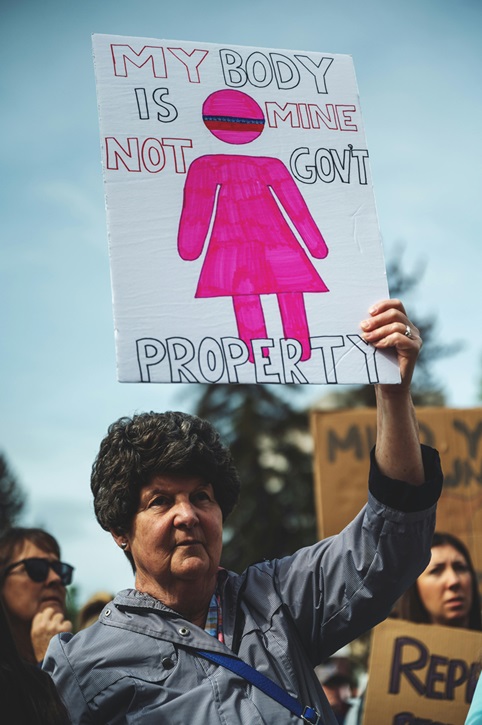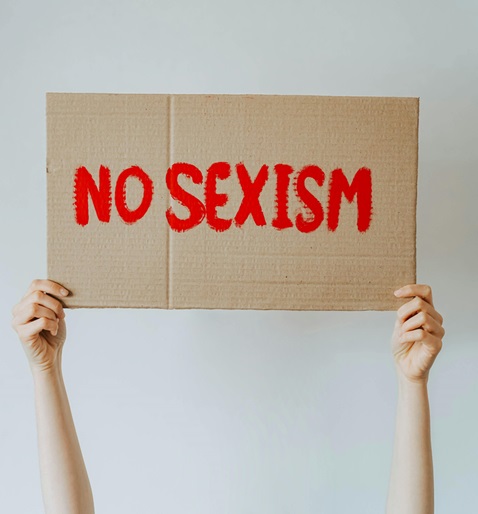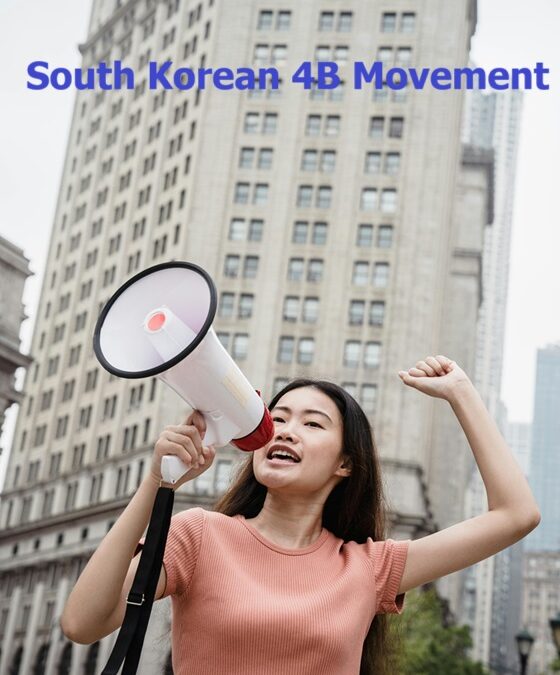South Korean 4B Movement: No Dating, Marriage, Intimacy, or Kids
The South Korean 4B Movement, also known as the “Four No’s” movement, is a social movement with far-reaching implications in one of the world’s most rapidly modernizing yet traditionally conservative societies. “4B” stands for the four core choices that many South Korean women are embracing: no dating, no sex, no marriage, and no childbearing. This movement reflects a significant rebellion against the cultural expectations imposed on women, marking a profound shift in South Korea’s gender dynamics and family structure.
Origins and History of the 4B Movement

The 4B Movement emerged in South Korea in the late 2010s. Its roots lie in a growing dissatisfaction among young women with traditional gender roles and societal pressures. These pressures are embedded in South Korea’s highly patriarchal social structure, which has long dictated specific roles for women, particularly around marriage and motherhood. For many South Korean women, achieving these “milestones” has often meant sacrificing career ambitions, personal autonomy, and financial independence.
The movement began as part of a broader wave of feminist activism, especially as South Korean women became increasingly vocal about workplace discrimination, harassment, and the unrealistic expectations imposed on them within family structures. South Korea has also faced low birth rates, which have highlighted the nation’s economic and gender inequalities, particularly for young women who feel that having children would further limit their autonomy and career opportunities. With more women delaying or avoiding marriage, childbearing, and relationships altogether, the 4B Movement grew from a fringe trend into a recognized cultural force.
Why the 4B Movement is Needed
The movement addresses several core issues within South Korean society: gender inequality, workplace discrimination, and personal autonomy. For many South Korean women, the traditional family structure continues to prioritize a woman’s role as a wife and mother, often limiting her career options and putting immense pressure on her to fulfill domestic responsibilities. Studies have shown that South Korean women tend to leave the workforce after marriage or childbirth due to limited support for working mothers and intense work hours, creating significant economic and social disparities.
The 4B Movement is a form of resistance, allowing women to claim their right to choose a life that aligns with their goals and values, free from societal expectations. It empowers women to focus on self-fulfillment, personal growth, and financial independence. While not every woman in South Korea aligns with the 4B ideology, the movement speaks to a larger societal reckoning with rigid gender norms and the need to create a more inclusive space for individual choices.
Global Significance of the 4B Movement

The South Korean 4B Movement has sparked international interest, as it mirrors similar movements worldwide where women are questioning conventional roles and seeking gender equality. It has prompted a broader discussion about women’s autonomy and sparked debates on gender roles in family, work, and personal relationships.
Around the world, traditional gender roles are being challenged, with many women choosing independence and careers over marriage or motherhood, and the 4B Movement has brought renewed attention to these issues in an Asian context.
The movement has also highlighted the economic impacts of gender inequality, particularly as countries with shrinking populations like South Korea are finding it challenging to sustain economic growth. The 4B Movement poses a challenge to South Korea’s government and society, which must reconcile with the fact that, without significant changes in gender equality, traditional expectations around family and childbearing may be increasingly out of touch with younger generations.

After the result of the United States presidential elections , many young liberal and dyanamic women deleting dating apps, cancelled dates with their men,signing off self defence classes, getting on birth control . For many young women, the former president’s history of misogynistic and chauvinistic behavior makes his re-election feel like a setback for the advancement of feminism.
A Cultural Shift in the Making
The 4B Movement isn’t only about rejection; it’s a proactive redefinition of womanhood in South Korea. By opting out of dating, marriage, sex, and childbearing, many South Korean women are asserting their freedom to create their own paths. This movement sheds light on the need for societal reforms that support personal choices without social stigma. In many ways, the 4B Movement is a cultural shift in the making, one that is challenging the core tenets of South Korean society and sparking new conversations about the future of gender roles.
Disclaimer
This blog is intended for informational purposes only. The South Korean 4B Movement is a complex social phenomenon, and this blog aims to provide an overview of the movement, its origins, motivations, and potential societal impact. It is not an endorsement or critique of the movement, nor does it attempt to oversimplify the diverse perspectives within South Korea on this issue.
The choice to participate in or support the 4B Movement is a personal one, influenced by individual experiences and beliefs. This blog encourages readers to understand and respect the varying factors that contribute to people’s lifestyle choices. Additionally, any discussion of social and gender norms should be approached with sensitivity to cultural context and with an open mind to differing perspectives.


